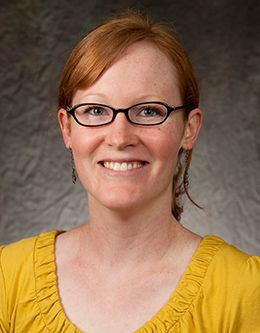I’m guessing we all had various expectations as we arrived here, some outrageous and some reasonable. If your experience has been like mine, all of your expectations were not met, but I would surmise that our unmet expectations, whatever they were, brought good things to our college experiences, contributing to the people that we’ve become.
Four years ago I arrived at BYU with lofty expectations. I expected to grow intellectually and spiritually. I expected to be instant friends with my freshman roommates. I expected my classes to be a breeze because I was smart. I expected to graduate unmarried. I expected to broaden my horizons and learn as much as I could. I’m guessing we all had various expectations as we arrived here, some outrageous and some reasonable. If your experience has been like mine, all of your expectations were not met, but I would surmise that our unmet expectations, whatever they were, brought good things to our college experiences, contributing to the people that we’ve become.
Some of my expectations were long-standing, dating from when I first started to think about coming to college. As a five- or six-year-old, I remember my astonishment at discovering that doctoral degrees existed in many areas. I could become a doctor in something other than medicine! That became my goal. I settled on a juris doctorate—though at the time I didn’t know that that’s what law degrees were called—because I wanted to be a United States Supreme Court justice, a position that sounded even more glamorous to my young ears than president. After all, justices do wear robes.
When I finally said good-bye to my childhood dreams and settled into the world of English literature at BYU, I felt a little apprehensive. I loved what I studied, but at the time I couldn’t really think of anything less influential. Maybe some of you had similar experiences, choosing or changing your major because of those feelings. Well, I persevered in English—a subject I have since become very passionate about.
As I made that choice, a story that botanist Paul Alan Cox tells became very important to me. While on a tour of the Salt Lake Temple, Dr. Cox started wondering how his skills as a scholar of botany could possibly help build the kingdom of God. He couldn’t carve stone or do any of the carpentry work that ornamented the Salt Lake Temple, but when he saw the desk where James E. Talmage wrote Jesus the Christ, he had an epiphany. He realized that all professions have their place. He says, “All have a contribution to make in the kingdom.” It is my conviction that BYU exists primarily to help us contribute to the kingdom in whatever profession we choose.
As we leave this place, we must, however, choose to make a difference in the world. BYU allows us to have more influence, more opportunities to increase His kingdom on the earth, including in our professional lives and in our communities, because we have responsibilities not only to our families and our friends but also to humanity.
Martin Luther King Jr. said, “All labor that uplifts humanity has dignity and importance and should be undertaken with painstaking excellence.” As graduates of Brigham Young University, a dedication to humanity and to excellence is something that we should all continue to cultivate. In all aspects of our lives—familial, ecclesiastical, professional, and civic—we should be uplifting as many people as we can, because if we love God, we love those around us. During our time at BYU we have set the stage for a lifetime of learning and service. Independent of major or career choice, if we stick to that path we have forged for ourselves, we can serve our fellow men.
As we set out on our postgraduate path, we should first show gratitude. Like you, I am grateful for the mentors, professors, classmates, and friends who have guided me and helped me through the maze that is higher education. I am thankful to the BYU Board of Trustees for valuing what we can do with an education and helping us to obtain one. I am thankful to my husband, to my family, to my Savior, and to my Heavenly Father. All of these people deserve our thanks today.
And now it is time to go and do. Much has been given here, and now much is required. I entered BYU scared to talk to people, overconfident in my own intellectual abilities, and convinced that I didn’t need anyone else to succeed. I leave here humbled—although able to hold a somewhat less stilted conversation with someone I’ve just met. I leave here acutely and thankfully aware of how crucial associates, colleagues, roommates, friends, and family are to leading a successful and happy life. I leave BYU with the knowledge that I’m not nearly as smart as that freshman who arrived four years ago, but I have learned how to think more critically and I have learned how to learn. With the help of others and through hard work, we can and shall accomplish something worthwhile. We leave here with a firm conviction that we have been blessed to be at BYU and that we have a responsibility to God and to those we love and serve to do something of great worth.
May we be not only relieved but also refreshed and rededicated as we face this beginning before us. Congratulations, graduates. Thank you.
© Brigham Young University. All rights reserved.

Jessie Leatham Wirkus spoke as the representative of her graduating class at BYU commencement on 14 August 2008.

